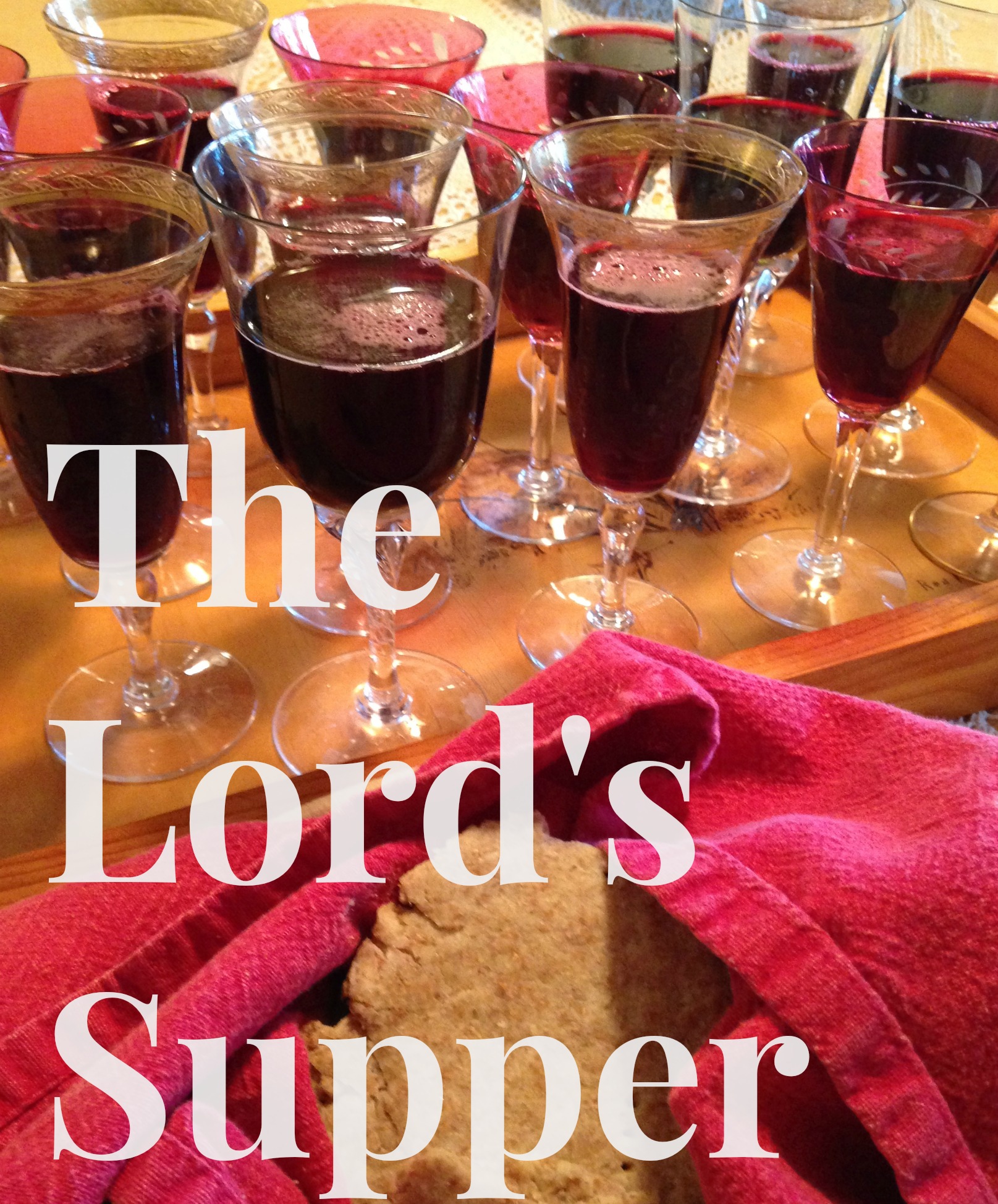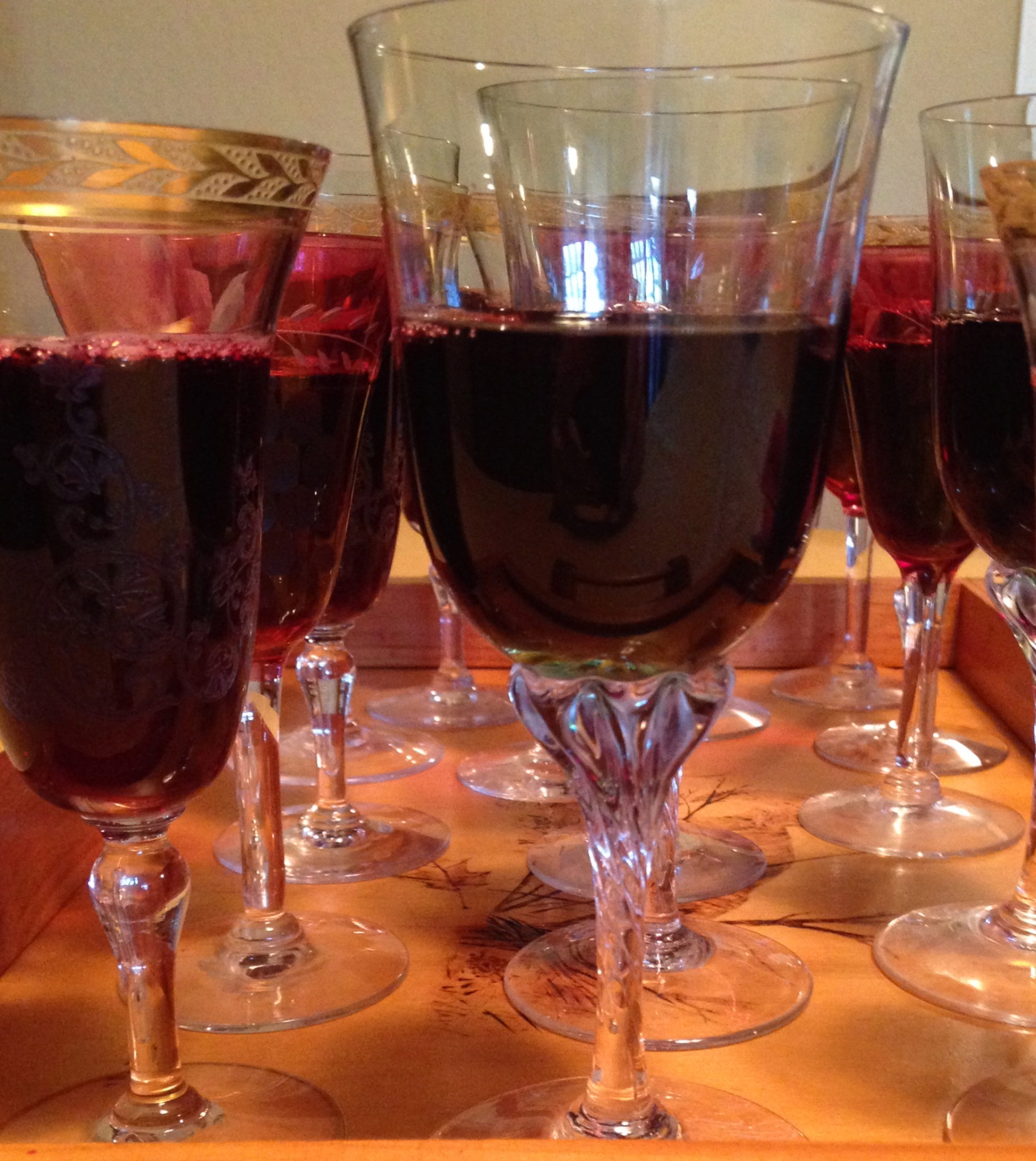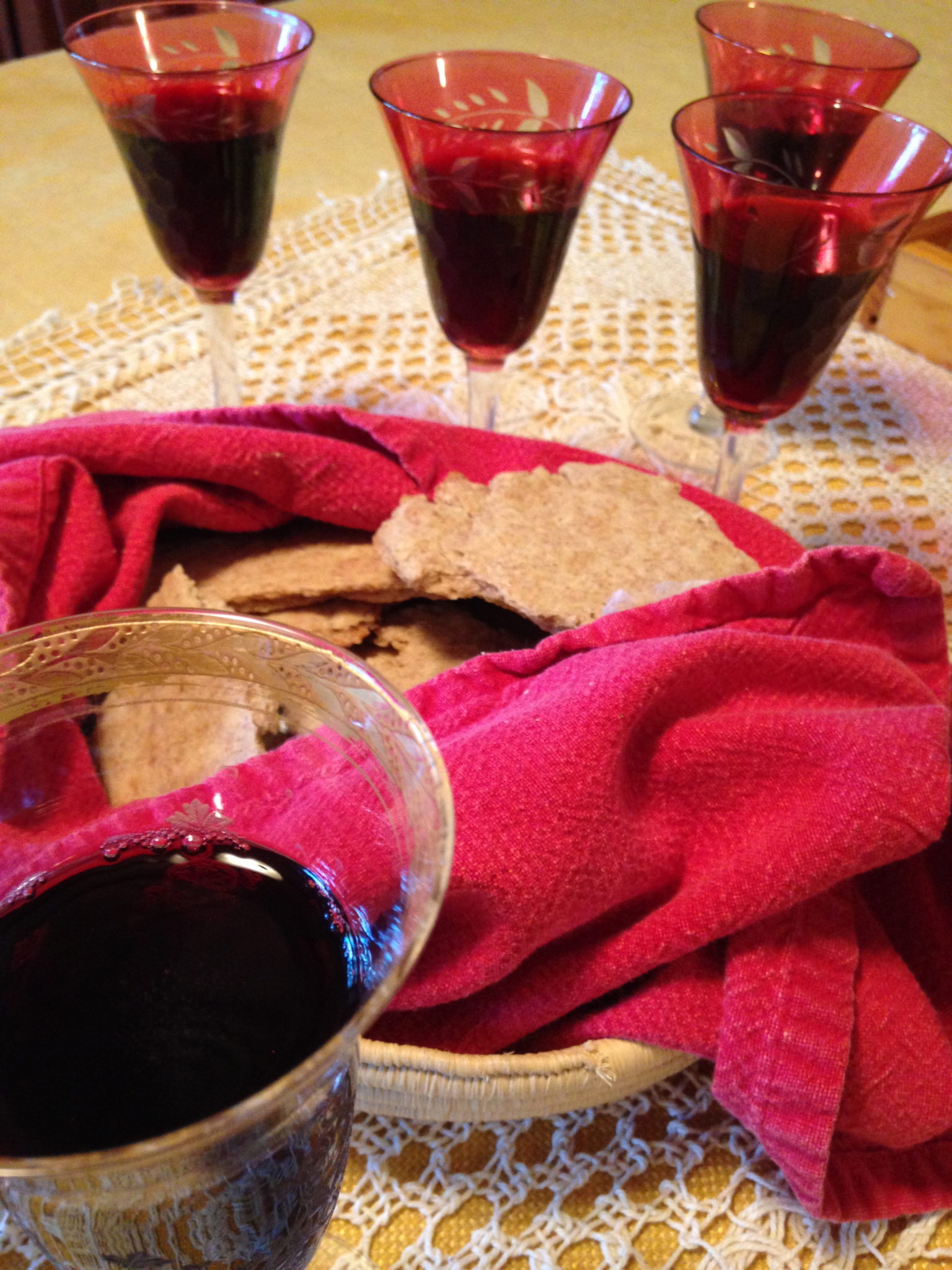Sundays, in the GreenHouse, are for eating together. Our college sons come home for Sunday lunch, and in the evening a group comes over for dinner. Everyone contributes to the evening meal–always delicious and plentiful. But it’s not the tasty meal that brings us together. It’s the Lord’s Supper.
So last week, when I wrote about “Food is Memories”, I couldn’t help but think about Sundays. When I learned about the power of memories associated with flavors and smells—that those memories are more vivid and emotional than memories associated with other senses, it made me appreciate the significance that God connects our remembrance of him to the flavor of bread and wine.
There are plenty of things the creator could have commanded us to do in order to remember him–wear a cross around our neck, tattoo one on the ankle, pierce the ear or build a memorial.
But instead, he told us simply to break bread together. Drink together. Give thanks and remember him. Bread and wine–such a merciful request on his part. Anyone can do it.
Eating together to remember God was a common custom in the life of the Jewish family. They celebrated a few feasts each year to turn their focus to the Creator. Special foods have always connected them to significant memories.  So it’s no surprise that Jesus was eating the familiar flavors of bitter and sweet at the Passover meal when he instituted a new ritual to remember him. He passed the unleavened bread around the table and told his close friends that he was the bread. And the wine that they sipped was his blood.
So it’s no surprise that Jesus was eating the familiar flavors of bitter and sweet at the Passover meal when he instituted a new ritual to remember him. He passed the unleavened bread around the table and told his close friends that he was the bread. And the wine that they sipped was his blood.
Give thanks. Eat. Drink. Remember.
So that’s what the early church did. They celebrated the Lord’s Supper at what was known as “love feasts” (similar to what we call a fellowship meal). Those who followed Jesus-the rich and the poor-gathered for a meal, usually in the home of a believer. They shared a meal, they shared the Lord’s Supper, they shared memories.
The new tradition got a little messy though, at least in the city of Corinth (I Corinthians 11:17-34). People began to eat the meal before others arrived. Some indulged in too much, others hardly ate anything. And some meals were so chaotic and divisive that they lost the focus of remembering Jesus.
So through the years, the church has tidied up the ritual. It’s orderly now, no more mess or chaos. We pass trays quickly and efficiently–breaking the smallest piece of cracker without making it crumble, and returning the miniature cup without a clang. To avoid too much mess and noise, there are some places that even provide cracker bits already cut into less than bite size portions. It’s even more convenient. The practice can still be meaningful. But we’ve practically taken the “supper” out of the Lord’s Supper, taking the flavor out of the memory.
It should be no surprise though, because we’ve done the same thing to our religion that we’ve done to the ritual. We’ve tidied it up to avoid the messes.
- We soften the hard sayings of Jesus.
- We limit spirituality to the confines of the pews.
- We give pat answers for tough questions.
- We make issues black and white, no allowance for gray.
- We keep church neat by gathering with others who are like us.
- We follow rules instead of following the Spirit.

I admit that I usually prefer neat over messy. I like the beds made, clothes folded and the dishes in the dishwasher. But when it comes to Christianity, if it’s too neat and convenient, then it’s probably too bland. It’s lost its intended flavor.
Ironically, this past Sunday night we nearly had a royal mess. One of the tables almost collapsed during suppertime—I was afraid that they would remember a hot bowl of soup in their laps more than the bread and juice we were about to share. It wouldn’t have been the first Sunday night mess–we’ve had full glasses of grape juice spilled on the carpet (just cleaned the previous week), broken wine glasses, burned communion bread. And we’ve had other kinds of messes too–unanswered questions, hurt feelings, death, depression, dementia, addiction, farewells.
Thankfully, though, we also have lots of flavor.
We give thanks. We pass the bread–sometimes twice. We eat and drink.
We remember.






That was great Fran! -Troy
Well done! We are having a leaders retreat this weekend and the “Table’ is one of our main topics. I have forwarded your article to each participant. Thanks. George M
Thanks, George. May God bless your kingdom planning!